How Do I Sell and Buy at the Same Time?


A question I often get, especially during the current competitive, low-inventory market, is “How do I sell my DC Metro-area home and buy another one, when I need my proceeds from the current home to finance the new home?” It’s a great question because it’s confounding, confusing, and an overwhelming process – the mention of it can send shivers down the backs of the most competent and experienced of homeowners.
Many people have considerable equity in their homes, which is great because they will need this “money,” or at least a portion of it, to use as a down payment for a new property. But, given the extremely low inventory of homes for sale, sellers are extraordinarily judicious in terms of selecting an offer, and often have multiple offers from which to choose. In fact, just yesterday, I was speaking with a couple who were asking how this could work for them. They are staying local but crossing state lines – leaving one competitive market and jumping into another even more competitive market.
We, Realtors, always suggest that you begin this seemingly daunting process by speaking with a locally based, reputable mortgage lender. It helps the loan officer, considerably, to have at least a ballpark price, for which your home might sell. So, a good real estate agent can do a market analysis for the loan officer as a preliminary step. The loan officer also needs to know the rough purchase price a buyer is targeting – which will be impacted by desired features, size, and location of the home. The loan officer can then generate a fairly good idea of future mortgage payments, taxes, and the necessary down payment amount. Armed with that information, a prospective buyer can decide if a purchase is in their future.
The next step is to work with your Realtor to get the home market ready. To be truly successful in this endeavor, a house must appeal to the largest possible number of prospective buyers and must create a strong emotional pull for buyers considering your home. The more buyers there are vying for a particular home, who feel they “just HAVE to have it,” the more favorable the contract terms will be for the seller. It is also at this time that a Realtor will do a detailed market analysis and fine-tune the home’s asking price.
A very fortunate seller will end up with multiple offers, but remember that it takes just ONE good offer to make it work. What listing agents hope for their sellers, is a bidding war where a quick settlement and what’s called a “post-settlement occupancy” or “rentback” period can be negotiated, so that the seller can remain in the home for up to 60 days (per underwriting guidelines) while selecting and purchasing a new home. This allows the seller to realize the proceeds out of the sale of their home, and gain the flexibility to look for a new home and move without the stress of two mortgage payments, having to move twice, and/or endure an expensive hotel stay.
It should be noted, that unless you are able to negotiate a free rent-back period, a seller will typically pay the principal, interest, taxes and insurance, plus any homeowner/condo association fees incurred by the buyer during that time, on a per diem basis. Though this may seem daunting, we find that it is almost always less expensive than moving twice.
While there is the option to make an offer on a new home before an existing home is sold, and make the purchase contingent on that sale, in this market we find this is not acceptable to most sellers. A contingent offer will be immediately set aside in favor of others with fewer contingencies.
Though selling first and negotiating a post-settlement occupancy period is often the best way to go about coordinating buying and selling, having a Plan B is prudent – maybe this is moving in with a relative or finding a short-term rental. A good Realtor can help craft a strategy for success.
The DC-area market can be intimidating; however, that doesn’t mean you can’t achieve your goals. With solid advice from experienced professionals, you can get through the many stages of this process – investigating, preparing, selling, selecting, buying, and moving – with minimal anxiety and optimal results.

Ann McClure is a licensed real estate agent in Virginia and Maryland with McEnearney Associates, Inc. in McLean, VA. If you would like more information on selling or buying in today’s complex market, contact Ann at 301-367-5098 or visit her website AnnMcClure.com.
First Time Home Buyer Loan Programs


If you have made the decision to purchase your first home, you may benefit from some of the “First Time Homebuyer” mortgage programs which exist. Many lenders offer the Fannie Mae HomeReady and Freddie Mac Home Possible programs to qualified borrowers. In addition, Virginia, Maryland, and DC each have mortgage revenue bond programs available to assist first-time buyers. It is useful and important to consult with a locally based lending institution to determine what programs may be available and useful to you.
The Fannie Mae and Freddie Mac programs provide similar benefits and have similar qualification requirements. Both programs allow for a down payment as low as 3% of the purchase price and, also allow for some or all the down payment to come from gifts from family members.
The programs have maximum income thresholds equal to 80% of the area median income but also provide flexibility in what can be used as qualifying income. For example, parents, who won’t be living in the home, can be co-borrowers on the loan to help their children qualify for a mortgage and purchase a home.
The interest rates are often slightly more favorable under the Fannie and Freddie programs and the mortgage insurance premiums are as well.
First-time buyers in Virginia may avail themselves to the programs offered by VHDA, now known simply as Virginia Housing. Lenders providing VHDA loans can lend up to 101.5% of the purchase price of the home through the “Plus” program, providing the buyer with a very low cash outlay requirement. As an alternative to the “Plus” program, buyers could also choose either the Down Payment Assistance Grant program or the Closing Cost Assistance Grant program neither of which have repayment requirements.
The Maryland Mortgage Program (MMP) allows lenders to provide 30-year fixed-rate home loans to eligible homebuyers purchasing in Maryland with competitive rates and with down payment and closing cost assistance.
DC Open Doors helps make homeownership in Washington, D.C. affordable by offering qualified buyers home purchase loans, down payment and closing cost assistance. The program offers deferred repayable loans for a homebuyer’s minimum down payment requirement in addition to below-market interest rates for first trust mortgages.
HUD’s FHA programs require down payments of only 3.5% and allow for debt-to-income ratios significantly higher than most other mortgage programs. While not limited to first time home buyers, it is often the program of choice for this group of purchasers as there is no maximum income limit.
Finally, VA loans are a great option for first-time buyers who may not have enough available cash to make any down payment. Qualified veterans and active duty service members can finance 100% of the purchase price of the property with fixed-rate loans which allow for higher debt-to-income ratios than almost all other programs.
[divider height=”30″ style=”default” line=”default” themecolor=”1″]
 Brian Bonnet | Senior Loan Office
Brian Bonnet | Senior Loan Office
Atlantic Coast Mortgage, LLC
NMLS ID# 224811
e: bbonnet@acmllc.com | t: 703-766-6702
A lifelong resident of Northern Virginia, Brian brings twenty-five years of lending experience to the group. After graduating from The Citadel and serving as a Naval Officer, Brian transitioned to the United States Senate Veteran’s Affairs Committee where he served as a Professional Staff Member and had the responsibility of overseeing the VA Loan Guaranty program. After leaving Capitol Hill and the political world, Brian entered the mortgage banking industry. Keeping abreast of the myriad changes in the lending industry over the years has given Brian a unique perspective and the ability to successfully serve his clients regardless of the current market conditions. With his extensive knowledge about the VA and its loan guaranty program, Brian is widely recognized as a specialist in VA financing. He enjoys sharing his knowledge and experience with others and is certified to teach Financing Continuing Education in Virginia, DC, and Maryland.
[divider height=”30″ style=”default” line=”default” themecolor=”1″]
Don’t miss a post! Get the latest market updates and neighborhood news straight to your inbox!
How Do I Make My Home More Enjoyable to Live In?


With more time spent at home, you might have noticed some things that you like or don’t like about your home. With the summer months heating up, now is a great time to do some minimal decluttering to help open up your space and make your home feel more like a place of relaxation instead of stress.
First, try clearing off the counters in your home. Flat spaces tend to have the most clutter. Clear off everything possible except for one or two essential things. Clearing off your desk especially will help you to focus as you continue to work from home. The counters in the kitchen are another area to focus on. More counter space means more room to prepare healthy, home-cooked meals.
After you have cleared your counters, try organizing the kitchen drawers and cabinets. Keep spices and seasonings close to the stove so that they are within easy reach when you are cooking. Go through your pantry and refrigerator and remove all expired foods. Donate any non-expired food items that you no longer need to the local food pantry. When deciding what to keep or give away among your kitchen utensils and appliances, try putting everything into a cardboard box for a month and put a utensil back into the drawer only if you use it. Anything left in the box can also be donated.
Another good idea to revitalize your living space without renovating is to eliminate extra furniture. Too much furniture can be distracting and make rooms look much smaller. Keep your space open and inviting. You can try rearranging your furniture to see what works best in your space. Replacing throw pillows and floor rugs can bring new color into a room and make it feel more welcoming.
To keep clutter to a minimum, reduce paper trails in your home. Designate one area to place any papers, bills, etc. like an inbox tray to reduce the amount of excess spread out in your home. Periodically go through your papers, scanning anything important to your computer and shredding the rest. Nowadays many businesses have events where you can bring your sensitive documents to be shredded at no cost to you.
Your closet is another area in which you can reduce clutter. Creating a capsule wardrobe or a mini wardrobe made up of versatile pieces that you really love allows you to be creative in your wardrobe choices for the day. You can mix and match items that you already own to create new and unique statement outfits. You can also organize your closet with “the Hanger Test.” This involves turning all of the clothes hanging in your closet so that the hangers face back-to-front for the next six months. If you wear an article of clothing, return it to the closet with the hanger facing the correct way. Any item not facing the correct way, you can consider getting rid of or donate. Websites like ThredUp and StitchFix will take your old clothing and give you credit to buy new pieces for your wardrobe.
Lastly, clear out your medicine cabinet. Toss any expired medication or things that you will never use again. Make sure to keep all of these items out of the reach of children.
If all of these items together seem overwhelming at the moment, download a 30-day declutter calendar. This will help you break down your to-do list into more manageable chunks. Every day you focus on only one task. By the end of the month, you will have rejuvenated your living space and made your home a more enjoyable place to live in.

Jean Beatty is a licensed real estate agent in VA, MD, and DC with McEnearney Associates, Inc in McLean, VA. If you would like more information on selling or buying in today’s complex market, contact Jean at 301-641-4149 or visit her website JeanBeatty.com.
What Are The Most Common Seller Questions?


Question: When is the best time to sell?
Answer: If you are considering selling for the first time, you may find yourself debating, when is the best time to do so?
In Northern Virginia, the number of homes on the market at the end of May 2020 was down 31.3% compared to the end of May 2019. For roughly the last 5-7 years we have experienced a seller’s market, but now more than ever, we are in need of inventory for buyers in the D.C. Metro area. Demand for housing proves to be strong as we enter the second half of the year.
As long as interest rates remain historically low and consumer confidence is high, we should expect to see these trends continue. If you are considering selling, now is a great time to reach out to a professional real estate agent to discuss your options. We’d be thrilled to interview for the job!
Question: Should I make updates prior to selling?
Answer: If you are considering beginning a major renovation, stop. Renovations can be costly and time-consuming. However, homes that are positioned well in terms of price and condition will tend to move faster with an accepted offer upon hitting the market.
First impressions are important. We always recommend hiring a professional photographer for marketing materials. If you own a condo in a high-rise building, preparing for the market may be as simple as neutralizing paint colors and decluttering your closets. While a single-family home may want to spruce up its curb appeal with new shrubbery, mulch, and freshly cleaned windows. It would be wise to consult with a professional, free of charge, before making any moves.
Question: What is my home value?
Answer: It is important as a seller to remember that memories and emotional feelings of attachment toward a property are not seen as valuable to a buyer. If you want to meet with a realtor to discuss your home’s value, begin collecting any and all documentation you have in advance of that meeting.
Examples of documentation are as follows: age of systems, maintenance records, service contracts, and a list of upgrades. Providing these details upfront will help give a buyer peace of mind knowing the home had a great caretaker and add value in their eyes.
If a buyer is using financing to purchase your home, they will likely need an appraisal inspection as a condition of their loan approval. In order to gain an estimate of what a buyer may be willing to pay for your home and an estimate of the appraisal value, you will want to review the home sales that have closed most recently and are the most similar to your property.

Whether renting or buying, always consult with your local real estate agent for advice. We’d love to help you with the process! Contact one our team members today — Jillian Keck Hogan, Kristina Eells and Adrianna Vallario.
What Can I Do To Make My Home More Attractive to Millennial Buyers?


Question: As a seller, what can I do to make my home more attractive to millennial buyers?
Answer: Millennials, those born between 1977-1994, make up the second-largest sector (24.2%) of the population in the United States. There are 78.8 million millennials in the U.S., and in 2020 they accounted for 38% of all homebuyers, a percentage that is only increasing. Some are buying their first homes, but others are now ready to move into a larger home in which to raise their family.
To maximize a property’s appeal, sellers should be tuned-in to what millennials are looking for and highlight or update those features before listing to reduce the number of days that the home is on the market and yield a higher sale price.
So, what exactly are millennials looking for in a home? What features will increase the competition among this sector of buyers? Millennials, especially in the D.C. Metro market, lead busy lives and want a move-in ready property that has already been updated. They desire and seek out homes with a design that provides easy flow between spaces, high-end and trendy finishes, and smart technology.
Kitchens and baths top the list of rooms that should showcase popular, on-trend finishes and design. Creating the coveted “open-concept” is the most dramatic design modification a seller can make to attract today’s buyer. Removing walls between the kitchen and living or dining rooms allow for greater connectivity. A large kitchen island or wide-counter peninsula that allows for better sightlines, additional workspace and bar-stool seating is preferred by buyers over separate defined rooms.
Stainless steel appliances continue to be extremely popular, as well as stone or quartz countertops in light, neutral tones. Millennials are drawn to grey or white cabinetry in the kitchen, with sophisticated, clean lines. Solid hardwood flooring throughout the main level also provides the warmth, easy maintenance and visual appeal that today’s buyers want.
Sleek design trends that create a spa-like atmosphere are what millennials look for in the bathrooms. Large, walk-in showers with rainfall showerheads, free-standing soaking tubs, and natural stone finishes are all great choices in a bathroom redo. On-trend lighting and bathroom fixtures will quickly and easily improve a bath in the way that millennial buyers will love.
As technology continues to develop, the home itself has become “smarter.” Sellers should consider installing tech-forward options such as a video doorbell, an electronic smart lock for the front door, and thermostats or light bulbs that are controlled with the push of a cell phone button or voice command.
Due to COVID-19, the home office and personal outdoor space have also become vitally important. The current work from home situation could become a long-term reality for millennials. Sellers can increase their home’s appeal by showcasing dedicated office space and areas for home-schooling.
But, when the workday is finished, millennials want to be able to escape to an outdoor oasis, whether that be deck space, a screened-in porch, or a well-manicured backyard. Sellers would be wise to spruce up landscaping and outdoor spaces to showcase the potential.

Kathy Hassett and Chris Perry, Realtors® with McEnearney Associates in Old Town, have the experience and knowledge to guide their clients through the home buying process successfully and protect their clients’ interests throughout the transaction. Contact Chris Perry at 703-286-1204 or Kathy Hassett at 703-863-1546 today for assistance in your next real estate purchase or sale.
Renting vs. Buying – Which One’s Right for You?

The topic of real estate and homeowners seems to constantly be a subject of discussion, especially in the midst of the coronavirus pandemic as we find ourselves in our homes more than ever and realizing if our current accommodations are working for our new normals of serving as offices and classrooms.
The purchase of a house is the largest transaction most people will ever make. Such a big and expensive decision can feel like drinking from a fire hose in terms of the amount of information available. Where do you even start? When is transitioning from renting to buying a good decision? And how much does it really cost? Here are six things to consider when evaluating if jumping into the real estate market as a buyer makes sense for you.
1. Job and Professional Plans

First things first: How long will you be in the area? Think about your current role and employer. Do you like what you’re doing and where you’re working? Do you see yourself growing professionally and advancing, or are you considering making a jump to a different company or perhaps a different industry altogether? Even if you don’t plan on being in the DMV for years to come, buying might still be a good option because you can rent out your property if you decide to move. That way, you can (hopefully) have your mortgage payments covered by the renters, while you continue to build equity and will have taken advantage of the currently low-interest rates in obtaining the loan.
2. Personal Plans
Next, let’s dive into personal lives. Do you want a home that fits your lifestyle today or what it might be five years from now? Does the location of your immediate or extended family play a role in where you buy a home? Do you have a significant other or plans for growing your family? Will the school districts play a role in where you buy? Will you need a bedroom and full bathroom on the main level for aging parents, siblings, or other relatives who might be moving in with you? All of these questions can impact the style, size, and location of the home you seek.
3. Finances
Now let’s talk comfort levels. What you can afford to spend may not be the same as what you want to spend on a monthly basis. Ask yourself how much you are comfortable spending monthly. Do you want to spend more, less or about the same for a mortgage? Consider how much you’re earning versus spending on monthly debts (student loans, credit card or car payments), contributing to savings or retirement accounts, or personal expenses (television subscriptions, gym memberships, eating out, etc.). Write out a budget of your recurring expenses and which ones you might be able to eliminate to pay off so you have more money to direct elsewhere. It’s important to recognize that there are also additional costs that come with homeownership that renters don’t have to account for, such as home repairs and maintenance, HOA/condo fees and property taxes. Be sure to figure these into your budgets in considering how much house you can afford.
4. Time

What does your schedule look like today? Homeownership comes with responsibilities, as you are now the on-call maintenance department and held accountable for the largest investment you own. Do you have the time to dedicate to keeping up with a home? Many expensive issues that arise with homes can be prevented with regular maintenance. If you don’t have the skills or knowledge to work on your house, do you have the extra money to hire someone to help or finances to purchase maintenance contracts?
5. Credit Score
Ah, the all-important credit score. Your credit is the biggest factor in determining the interest rate a loan officer will give you when applying for a loan. Credit scores and interest rates are inversely related: the higher your score, the lower the rate you’ll get. An “excellent” credit score of 740 or higher will get you the lowest rates. If your score is less than excellent, improving it isn’t impossible, but it takes time. Your loan officer can run “what if” scenarios for you, and provide insight as to what your interest rate might be if you pay off (or at least, pay down) debts and improve your credit score.
6. Cash on hand
You will need to bring cash to the table to purchase a home. No, you do not need to have 20 percent of the purchase price, as many believe; depending on which loan program you use, the minimum amount you’ll need is 3 percent of the purchase price — the exception being VA loans for members of the military, which allow qualified buyers to put zero money down. You’ll also need money for the Earnest Money Deposit (EMD), inspections, and closing costs — plus some left over for reserves. Let’s go through those one at a time:
- EMD — This is the amount of money that accompanies your offer that shows your level of seriousness. While there’s no legal requirement, customary practices for buyers in Northern Virginia is 2 to 3 percent of the purchase price, or $10,000 to $15,000 on a $500,000 purchase, or 5 percent in Washington, D.C. ($25,000 on the same $500,000) purchase. This is the money you should expect to forfeit should you wish to get out of the contract, but have no contingency (or “out”) to do so.
- Inspections — Many buyers wish to have a home, radon, and pest inspections conducted prior to purchasing a home. Home inspections are usually based on the size of the home but can range anywhere from $450 to $650, or more, depending on the company. Radon inspections, which test for the presence of radon gas, are usually around $200, and pest inspections are typically less than $100.
- Closing costs — Closing costs are dependent upon which state and county you buy-in, and can vary greatly. These costs include the local county and state taxes for recording the deed and transferring the property (both based on the sales price of the home), plus the costs of conducting the closing, obtaining the loan, appraisal, credit report, and flood certificate, among others. We typically estimate closing costs to be between 2 to 3 percent of the purchase price.
- Reserves — You cannot use all of the cash you have on hand to purchase a home; you’ll need to show the lender that you have at least two months of expenses in reserves.
Buying a home is a big decision, and there’s a lot to consider and evaluate. Need some guidance? Reach out to your favorite McEnearney Associate, and we’ll help guide you, whether that’s buying now, or renting and saving for a future purchase.
[divider height=”30″ style=”default” line=”default” themecolor=”1″]
Don’t miss a post! Get the latest in real estate and neighborhood news straight to your inbox!
What’s in a Number? ‘Value’ vs. ‘Price’ When Selling a Home


What’s in a number? A lot of thought and careful analysis! Determining a list price (which ultimately leads to a market/sold price) for selling a property and determining its value are not the same. Let me explain – hang in there, this is a little bit of a bumpy ride…
Determining list price is a strategy – after thoughtful analysis of the value proposition of a particular home, seller motivations and the state of the market, a seller might decide on a specific list price in order to drive a particular end result. List price offers a strategy for arriving at the market price – or the most probable price at which a home will ultimately sell. After analyzing the value (and maybe the competition), market price is the amount a “ready, willing and able” buyer will pay and a seller will accept. Determining property value means taking a careful look at the benefits a particular property offers, its condition, updates and improvements and specific location. It requires a keen look at how a property compares to others within its marketplace.
Consider a home that backs to I-66 or the VRE tracks – it will not have the same perceived value as a very similar counterpart three blocks deeper into the neighborhood and as a result may be priced lower. What about the family going through a crisis that has a motivation to sell quickly, to get out of a particular hardship? Their list price strategy may be to price low to get the home to sell swiftly or to entice a bidding war, luring a buyer to buy without a home inspection or maybe even an appraisal.
Conversely, what about the retired admiral who is so used to keeping his or her surroundings “ship shape,” that the exterior paint is perfect, there’s not a blade of grass out of place nor a pesky shutter askew – every update that can be done is done and it’s the gem of the neighborhood. This home offers lots of value for its list price, reflective of the level of updates and maintenance. It may yield a new high water mark for the neighborhood because the value is perceived to be so high.
A wise real estate agent once shared this bit of wisdom: Buyers need to see the value for the price they are paying – and, if they don’t see that value, in order to sell (and not sit), something must change… The list price (what a seller is asking) and the perceived value (what a buyer is getting for the price) need to be congruent. If they are not, a downward price adjustment may be necessary and/or some action to remedy the perceived lack of value (such as updating the kitchen appliances, replacing the HVAC system or installing a new roof).
Even in this market, where inventory is so tight, buyers expect certain value for the price… They may want freshly painted “griege” walls, shiplap and a new open kitchen (thank you, Chip and Joanna!). These items represent value in their minds, and that value drives the price.
For instance, I recently listed a home with no central AC that was also on a fairly busy secondary road. The sellers and I decided on a list price $20,000 or so lower than where the comparable sales were to compensate for these negative factors. Our strategy was to offer such a good value for the price, that buyers would connect emotionally with the property, it would be seen as a good deal and the negative factors would be overlooked. And, therefore, the ultimate sale price would be bid up from the original list price. It worked like a charm!
My suggestion when considering price is to look at not only your own motivations as a seller, but also those of a prospective buyer. Carefully analyze your home’s perceived value (based on benefits and drawbacks) and then consider a pricing strategy based on these factors. And, remember, the market is a moving target – sometimes we need to re-calibrate our strategy. This is where a good agent can provide invaluable insight because nailing your pricing strategy is priceless!

Ann McClure is a licensed real estate agent in Virginia and Maryland with McEnearney Associates, Inc. in McLean, VA. If you would like more information on selling or buying in today’s complex market, contact Ann at 301-367-5098 or visit her website AnnMcClure.com.
I Want to Build My Dream Home. Where Do I Begin?


You have exhausted your searches on Zillow, Realtor.com and a myriad of other real estate sites. The same properties show up time and time again, and they don’t quite meet your particular needs. What are you supposed to do?
In these days of low inventory in the real estate market, it might be the right time to build a custom home instead. The process seems daunting, but with the right Realtor to guide you through the steps, it is a lot easier than you would expect.
Building a home is a multi-step process with a variety of different things to consider. Most of the work that you have to do is actually in the first three steps. The first and most important step of the process is finding the right builder. Like other service industries, finding an experienced builder who builds quality homes in a timely manner while meeting your specific needs and budget might seem like finding a needle in a haystack, but remember, you are not alone in this!
A good agent will have their top three builders ready to recommend to you. Real estate agents see a lot of houses. Specifically, they see a lot of NEW houses, so they have had the chance to tour homes built by a multitude of different builders. Don’t be fooled into choosing a builder based solely on his floor plans. Most builders can accommodate your desired floor plan at minimal cost. All builders are not equal, and it is best to consult a real estate professional to assist you. Builder contracts are usually quite complicated, but an excellent agent will have the experience needed to navigate them. After all, this will probably be the largest purchase you ever make and you will hopefully be living in your new home for many years to come.
Once you have chosen your builder, it is time to move on to the second step and find the best lot that will suit your custom build. Every lot is unique and it takes an expert eye to determine whether a lot will work for you and your new home. Pricing lots is not the same as pricing already built homes. Many distinct factors come into play when evaluating a lot’s worth. Even in the same neighborhood, there can be a wide range of prices because of buildability (floodplains and easements) and the lot’s topography.
For example, a home buyer who wants a walkout lower level in their next house should look for a lot with a slight slope. The best slope is a gentle one from the front to the back. Better still is a relatively flat lot with a mild slope to the side. This would allow a walkout main level and a walkout or walk-up lower level, giving you more freedom in the design of your home.
Other factors to consider when choosing your lot would be how the lot sits in the neighborhood. If it is in a valley, you may be dealing with water issues on a regular basis. Your local city or county websites are good resources for information about individual properties. Usually, these websites contain search engines with topographical maps that show whether or not a property is in a floodplain and the steepness of the slope. Virginia is a caveat emptor state, otherwise known as a “buyer beware” state. This means that the responsibility of doing the due diligence about the features and pitfalls of the property falls on you, the home buyer.
The third and last step in your home building equation is choosing the design. Many builders have promulgated their own designs that can be adjusted to suit your needs. A completely custom home, however, requires an architect. Most architects charge by the hour so it is best to find a base design from a website like architectualdesigns.com or homeplans.com and have them alter it for you. You can even check out books with floor plans from the local library! Computer models and floor plans can then be adjusted to meet your exacting standards. Once again, your agent’s recommendation for a builder is key. Excellent builders use outstanding architects.
After those three steps have been accomplished, your builder takes over from there! You will maintain a close relationship with them throughout the rest of the process so that they can determine your preferences for exterior and interior finishes, but they will handle all of the site permitting through the county and contracting work from site prep through the final touches.
Then, when everything has been completed and the occupancy permit has been granted, you will hear the seemingly magical words, “Welcome home to your dream home!”

Jean Beatty is a licensed real estate agent in VA, MD, and DC with McEnearney Associates, Inc in McLean, VA. If you would like more information on selling or buying in today’s complex market, contact Jean at 301-641-4149 or visit her website JeanBeatty.com.
What Should Seniors Know About Moving During COVID-19?


Question: Everywhere you turn, there are headlines about how devastating this virus has been to people over 60. Mostly in nursing homes, and, to a lesser degree, other “congregate” settings such as assisted living communities and some life care/life plan communities. It is true: statistically, that is where a huge proportion of infections and, sadly, deaths have occurred.
So, what should this age group (I have had my AARP card for over a decade) consider if it is time to downsize?
Answer: When people decide to downsize, it is very often because the home they have lived in for decades has become too big and expensive/time-consuming to maintain. They understand that moving to a smaller home frees them to a large degree from maintenance, and allows more time for travel, entertainment and other activities they may have been looking forward to in retirement.
Trips to see the grandkids, or that trip to the Islands that has been on their bucket list. I did it 3 years ago, and would do it today if I hadn’t.
None of that has changed. Life is continuing to happen. I have younger clients moving this month into the house where they will raise a family. And older folks moving to a condo where they will launch their next phase of life. There are just a few adjustments now.
Circle back to the virus itself. This is a virus that spreads from person-to-person via droplets from coughing, sneezing and simply breathing. Now look at nursing homes and some other senior living communities: they are caring communities where, by their nature, there is a great deal of very personal contact between residents and care-givers. It is hard to imagine a more conducive environment for the spread of COVID-19.
What does not make the headlines is that the vast majority of senior moves are to “privately-owned” properties such as condominiums, or smaller single-family homes with one level. They are not to congregate communities. These privately owned homes still offer all the benefits that downsizing affords in the first place. Plus, they offer the ability for the owner to react to outside circumstances such as COVID-19, just as they would have in their previous property.
So how do you accomplish a move these days? Logistically, moves during COVID-19 are happening with all the recommended precautions: we real estate brokers are handling purchases and sales mostly online using virtual tours, virtual contracts and virtual settlements.
While I have yet to meet a virtual de-clutterer or mover, these folks are all taking the steps necessary to protect clients of all ages. Social distancing, face masks and sanitizing wipes are the new normal, and respecting the wishes of clients is paramount.
We have a great corps of vetted vendors who can help clients through the “5 Steps to a Successful Downsize.” This includes de-cluttering, donating, discarding and the like. Plus, our Signature Service preparation of the house itself: painters, flooring contractors and most of the trades if needed.
As a Seniors Real Estate Specialist (SRES), I understand that moving gets tougher as we get older. And this virus adds an additional complication. But still, life continues to happen. The congregate communities will adjust and will continue to be a very viable option. For most older folks, however, condominiums and one-level houses were and are a great option. We can help you with that downsize, now or in the future. It is never too early to explore and to plan.

Pete Crouch has been a licensed Broker in Alexandria for over two decades. Pete also has a specialty in Mature Moves and he is a Board Member for At Home in Alexandria (AHA) Senior Village. He was the 2018 National Recipient of the “Outstanding Service Award” for work with Senior Communities. Text 703-244-4024 or email PCrouch@McEnearney.com for a copy of his Downsize Alexandria! Booklet about living more simply in Greater Alexandria.
Is Now a Good Time to Start a Career in Real Estate?


Question: Is now a good time to start a career in real estate?
Answer: Real estate has never been a career for those uninterested in hard work, maintaining focus in the midst of chaos, and having an optimistic view of the future. Why else would anyone take on a job where you don’t get paid until the end of the process? This is a career for entrepreneurs looking to build a business over a long period of time with highs and lows along the way.
But there is no doubt that what realtors are facing now is complex and challenging, tying together economic and health crises with a seismic shift in the way we do business.
No one has experienced what we are going through right now, so in some sense all agents are at the same starting point of learning to sell in the midst of a global pandemic. Of course, agents who were selling during the housing crisis of the late 2000s have a better reference level for what it takes to succeed in a challenging market.
But during the Great Recession it took years for our housing industry to recover and a great deal of overhaul in the businesses associated with real estate to reclaim public trust. That is not the case today, and there are signs that the strength of our local housing market prior to the pandemic — buoyed by low inventory and low mortgage rates, two things that have not changed — is keeping us in a positive position.
As local officials designated real estate as an essential service, realtors quickly ramped up to serve the public in the safest and most efficient ways possible. From stocking listings with anti-bacterial supplies to hosting virtual open houses and guiding clients through remote-access settlements, agents have ensured that CDC guidelines on public interactions have been carefully followed. And the results show that sales are still happening at a hopeful pace.
Local stats from throughout the D.C. area, as compiled by McEnearney’s David Howell, Executive Vice President & CIO, shows that for the last several weeks, contract activity still lags behind that of last year, but the previously very wide gap continues to narrow.
For the week of May 10-16, the total number of newly ratified contracts was down just 14.6% compared to the same week last year. To put that into perspective, the previous week was off 19.3%, and that was preceded by weekly drops of 30.9%, 40% and 45%.
Absorption rates for the City of Alexandria — the rate at which properties went under contract or sold in a 30 day period — in April showed a continued seller’s market, with a 47% rate for detached homes up to $1 Million and 33% for homes over $1 Million, 50% rate for townhomes up to $1 Million and 32% for townhomes over $1 Million, and 49% rate for condos and co-ops up to $1 Million (the news was not so great for condos and co-ops over $1 Million with barely any movement in those properties). While we do not expect contract activity to catch up to 2019’s performance anytime soon, the trend is very positive.
What the last two months have made clear is that our homes have never been more important to us than they are today. They have become the center of our universe — our workplace, our schoolroom, our communications center — providing a sanctuary in a time of uncertainty.
Demographics will shift as a result of our time in quarantine that will necessitate a change in housing: families will grow, couples will divorce, working from home will mean less focus on commuting times, multi-generations will come together under one roof. There will be a lot of movement in the housing market and opportunity for savvy agents at every change in that cycle.
Real estate was key to so many things in our lives before the COVID-19 pandemic arrived. It will take professional, knowledgeable and caring realtors to guide buyers, sellers and renters, through the new market ahead.
If before the pandemic you were considering a career in real estate because you wanted to be a part of something essential, not just to our economy but to our social fabric, then now is the perfect time to start.
If you’d like to learn more about how McEnearney Associates is growing, visit us at www.JoinMcEnearney.com.

This week’s Q&A column is written by Karisue Wyson, Director of Recruiting & Agent Support at McEnearney Associates Realtors®, the leading real estate firm in Alexandria. To learn more about this article, contact Karisue at 703-615-0876 or email kwyson@mcenearney.com.

 Facebook
Facebook
 X
X
 Pinterest
Pinterest
 Copy Link
Copy Link





